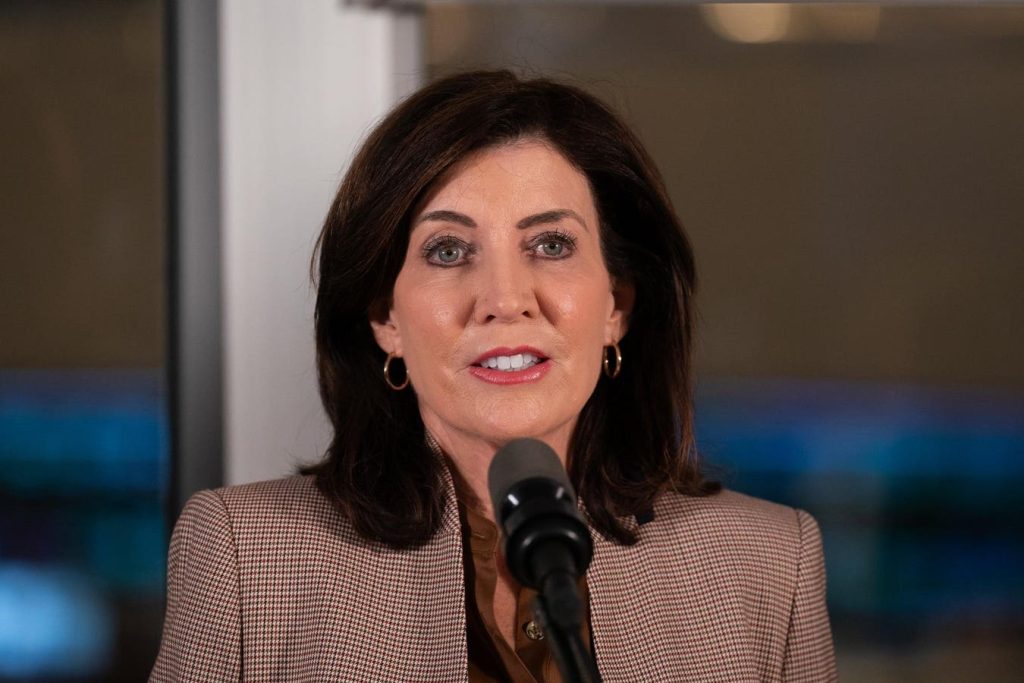New York Governor Kathy Hochul has decided to pause congestion pricing in Manhattan indefinitely, causing outrage in the climate community. The policy aimed to reduce air pollution and greenhouse gas emissions by discouraging car use and supporting mass transit. However, the decision to halt congestion pricing has raised questions about the motivations behind the reversal, especially as Governor Hochul had previously been a staunch advocate for the policy.
The pause in congestion pricing comes amidst a backdrop of growing opposition to climate policies globally. Politically challenging policies that impose costs on specific communities while benefiting the overall population can lead to backlash. This is evident in various countries where climate policies have faced resistance, highlighting the complexities and conflicts that arise when trying to implement measures aimed at addressing climate change.
Governor Hochul’s decision to postpone congestion pricing just weeks before its scheduled launch has left many puzzled. While the Governor cited concerns from diner owners about the tolling costs affecting New York City’s post-pandemic recovery, the abrupt reversal raises questions about the true reasons behind the policy pause. Speculation suggests that the decision could be linked to recent visits to the White House and concerns about inflation, as well as political considerations ahead of the 2024 elections.
The timing of the congestion pricing pause suggests a possible connection to federal politics, particularly in the context of Democrats’ efforts to regain control of the House in the upcoming elections. Given that certain districts in New York where congestion pricing is unpopular were lost to Republicans in 2022, the decision to pause the policy could be seen as a strategic move to win back these seats and increase the chances of Democratic victory in 2024.
Overall, the saga of congestion pricing in New York highlights the challenges of enacting policies that aim to address climate change. While congestion pricing has proven successful in other cities, the political landscape and public opinion play a crucial role in determining the fate of such measures. As communities push back against policies that impose costs on them, policymakers and climate advocates must consider ways to address concerns and ensure a more equitable transition to a low-carbon future.













